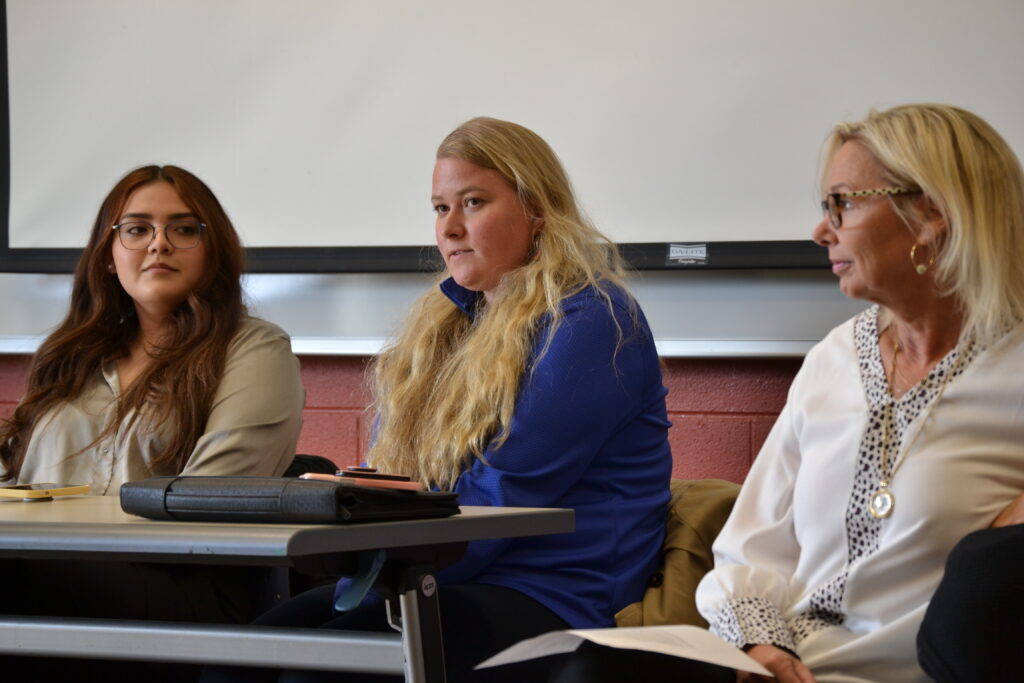The Center for Latin@ Studies teamed up with Teresa Hendricks, Elizabeth Arreola and Molly Spaak from Migrant Legal Aid Grand Rapids to give students more of an understanding of what Migrant Aid is and what they do.
This panel was titled “Migrant Worker Rights: Fighting the Good Fight.” This event took place on Wednesday, March 29, in the IRC building.
Twenty-eight students from different backgrounds came to this panel to ask questions and learn more about migrant workers and how they are treated and helped.
The Migrant Legal Aid website describes its operations as an organization that fights for migrant rights.
“Migrant Legal Aid is a nonprofit organization that has been fighting for migrant workers’ rights since 1973. The organization changed its name from Michigan Migrant Legal Assistance Project to Migrant Legal Aid to better reflect our mission and values.”
Hendricks, the executive director at Migrant Aid, was the moderator for this event. She asked questions to Arreola, their education and outlook director, and Spaak, one of their attorneys.
Arreola believes they do “a little bit of everything” in hopes that they can reach out and help as many migrant workers as possible.
“Our goal is mainly to help people with their legal matters,” Arreola said. “But I like to say that we do a little bit of everything. We do a lot of social services and referrals to other organizations. So a lot of the time we’ll get phone calls from people who maybe aren’t eligible for our services or we don’t have the services that they are looking for. We just refer them to trusted community partners that we know will handle them appropriately.”

Arreola also talked about how they are able to reach out to people when some migrant workers don’t have the time or the means to have transportation to go out and see them themselves.
“Primarily, the way we advertise our services to our farmworker community is through outreach,” Arreola said. “We hop in a van and go up to the migrant housing sites across Michigan and talk to them about the services that we offer.”
Arreola mentioned that they give the workers packets that contain information they might need, including their rights, what they can offer and different numbers to call if they need help.
Spaak spoke about how poor the migrant housing was and how different it is from what we might think or know as a home.
“The migrant housing is very poor and worn down,” Spaak said. “Most times they’re used to housing migrant and seasonal farmworkers for the amount of time that they’re working, so they’re often not being kept and a lot of the time are just in very poor condition. So when we do outreach, part of our mission is to inform them of these services, but it’s also to do housing inspections because they’re not being inspected appropriately.”
Spaak also talked about the fact that there are only seven inspectors for these housing units throughout Michigan. None of these inspectors speak any Spanish, which makes it hard to be able to communicate with the people in these homes and see what needs to be done properly.
The panel as a whole also agreed that most of the time these homes aren’t safe to live in. Especially when you have 50-100 people crammed into just a few homes.
This panel was a way to learn more about migrant workers and what they go through but also what kind of help they receive through Migrant Legal Aid.
